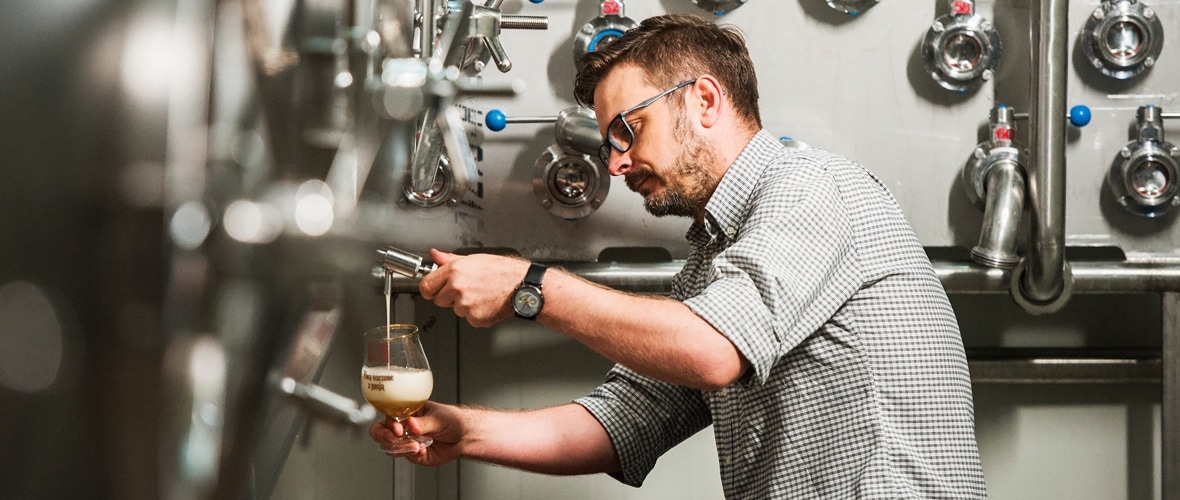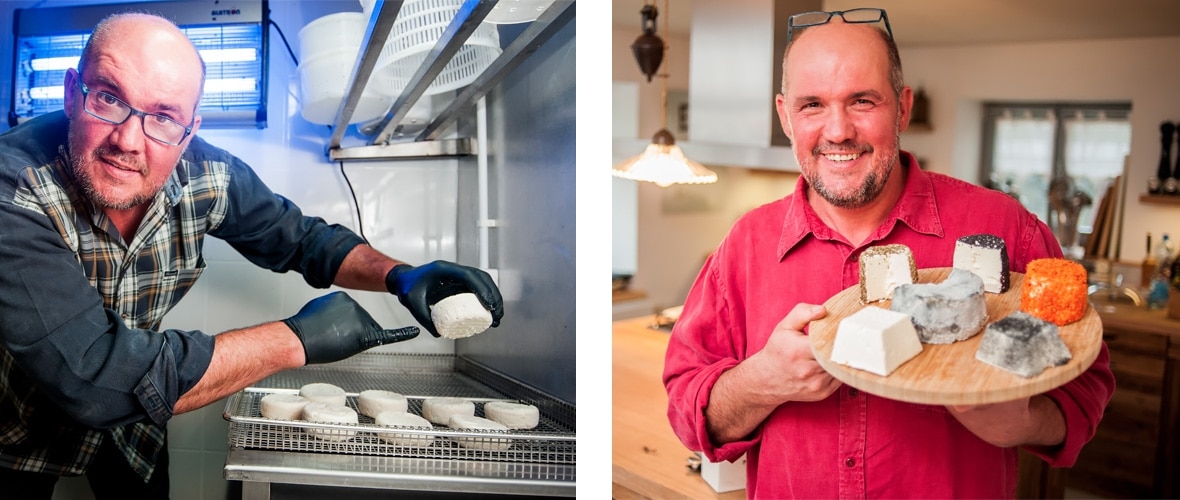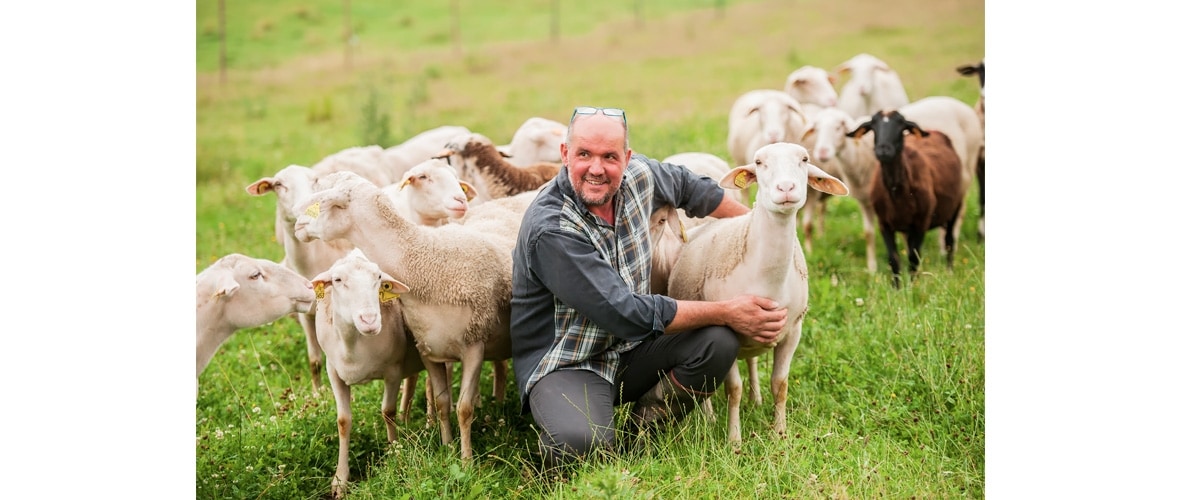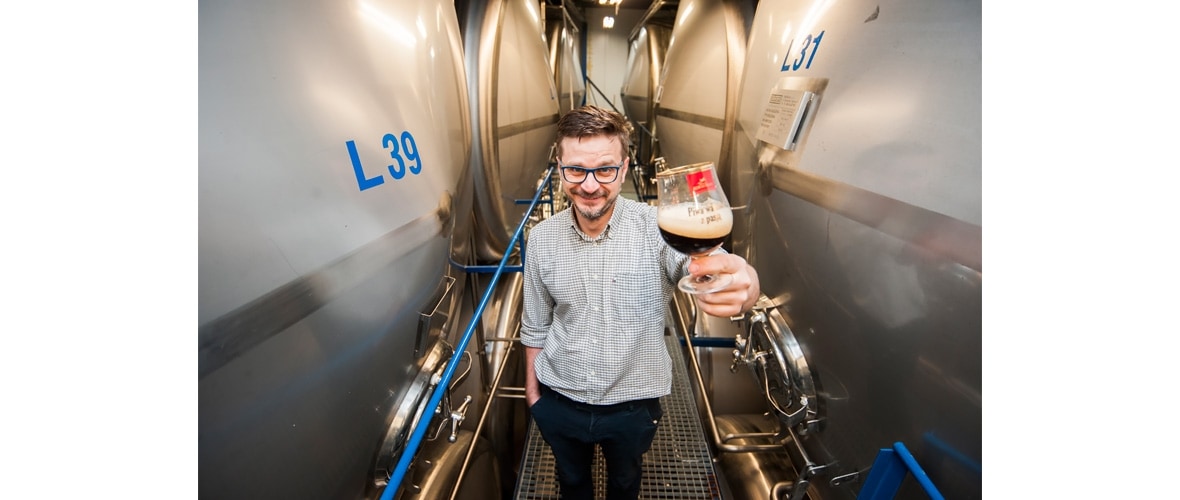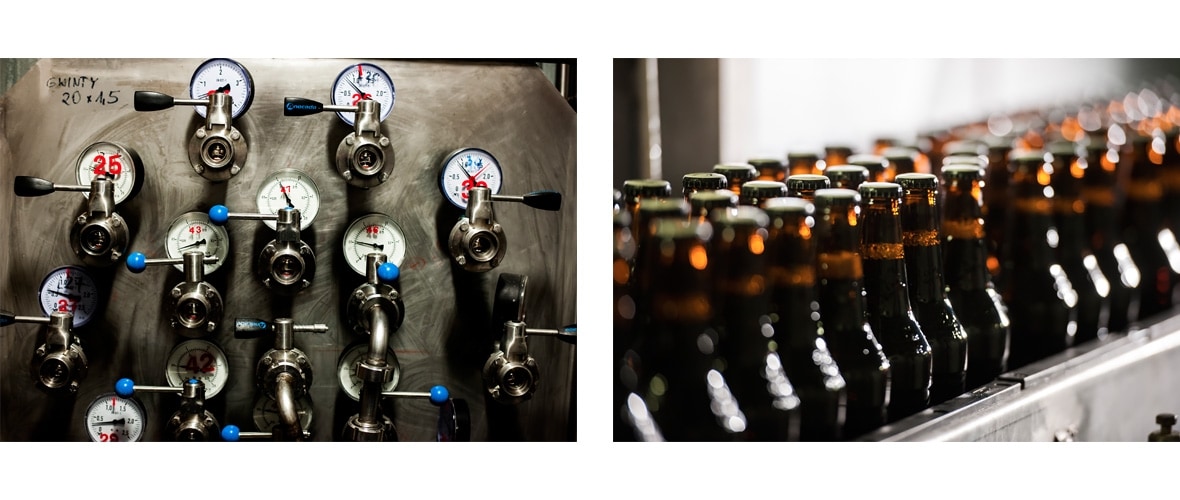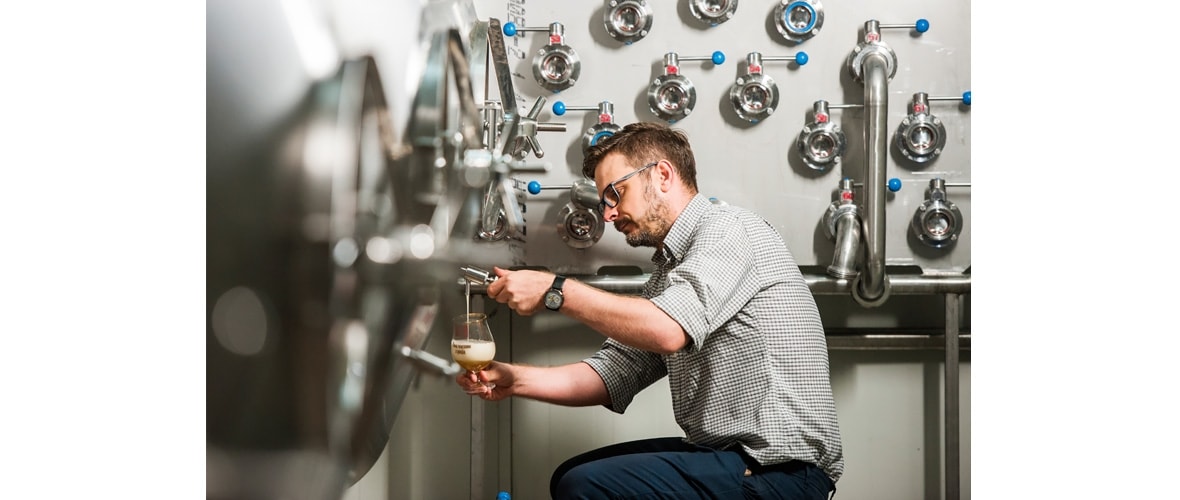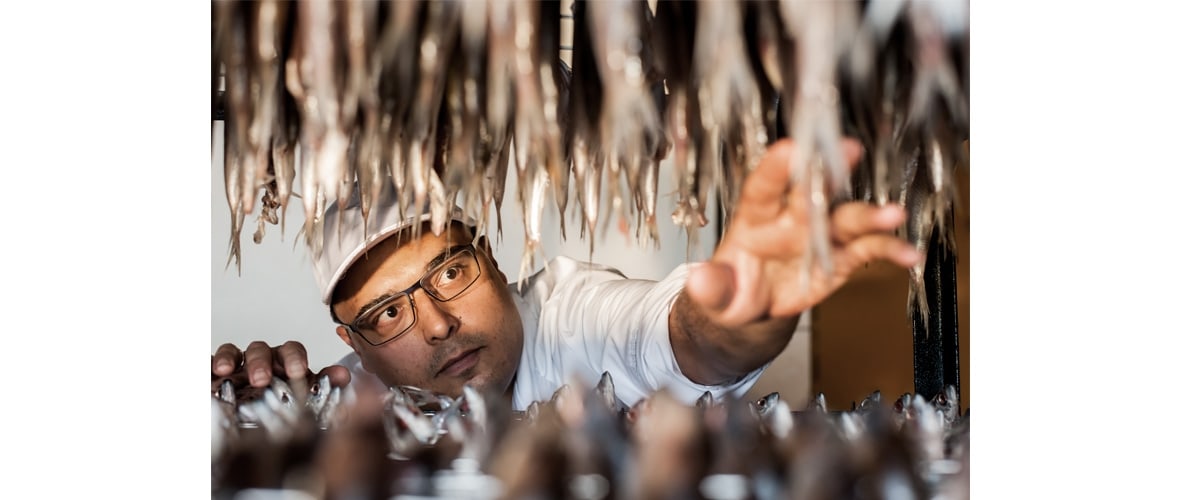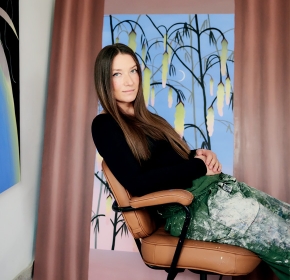What’s the secret of great beer?
Paweł Błażewicz: For me, it’s permanent exploration. In this respect, brewers are a bit like old-day alchemists. It’s a quest for excellence. And finally, it’s fascinating but strenuous work, sitting for hours analyzing the properties of individual ingredients and developing the perfect recipe.
And what can be an inspiration to create new flavors of beer?
Anything can be an inspiration. I love dogs and forests, I can’t even tell you how many twigs and needles I’ve picked up and sniffed in my life. Maciek, on the other hand, once went with his wife to the market, it was right before Christmas, and stumbled upon a smoked prune, such as the one we usually buy to make Christmas compote...
This sounds like a beginning of a very tasty story about beer...
And as luck would have it, we decided earlier that we wanted to show the new face of our Baltic porter beer, one that would be more associated with Poland. Maciej, our technologist, thought that smoked prune could be a great idea and took some of his wife’s fruit, just to check what would happen. We began trials not only with prunes but also other smoked fruit used in the Christmas compote. But apples and pears didn’t prove good for this, so we decided to stick to prunes. I even asked myself then where fruit are smoked in Poland. It turned out there are two types of smoked prune – suska sechlońska (Sechna prune) from the Małopolskie Voivodeship and śliwka szydłowska (Szydłów prune) from the Świętokrzyskie Mountains region. We found direct suppliers of both prune types, but we decided to go for the one from Sechna. Then, we conducted several dozens of tests, I think there were like 30 of them. We checked how many of these prunes we should add to make sure we didn’t lose the character of the base beer (the porter) or the prune.
What are some other secrets of good beer?
The color of our dark beer varieties is attained thanks to the malts which we roast or kiln ourselves. On the other hand, the straw color of spelt beer is due to the spelt obtained from an organic farm near Kętrzyn. The flavors and aromas of our beers are the result of different varieties and strains of yeast or honey from specially selected apiaries in the Warmia and Mazury region. Unique aromas are also achieved through the use of Polish, European, and New World hop varieties, orange zest, cilantro, coffee, smoked plums, or rowan berries.
How has the Tasty Stories project contributed to the lives of local food producers?
The “Tasty Stories” that we managed to tell with the chefs working in Dr Irena Eris SPA Hotels were an amazing culinary adventure, a perfect form of promotion for local food producers, but most of all, an opportunity to present our everyday work and its effects. Discussions with people were a very nice part of it all. We were able to implement this great idea – “I know what I eat, from field to table.” You are what you eat, so it’s worth to eat only what’s best.
